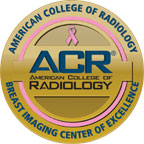Services Performed at: Lennon Rd-Flint, Villa Linde-Flint, Fenton, Grand Blanc, Davison, Lapeer, Novi, Royal Oak and Southgate
What is BRCA Gene Testing?
 Understanding your genetic predisposition to breast cancer can help you and your doctor make more informed decisions about your health. Whether or not you have already been diagnosed with breast cancer, it might have further important implications for you and your family. Women who carry a BRCA gene mutation and know about it can start cancer screening at an earlier age, take risk-reducing medication, or elect to undergo preventive surgery.
Understanding your genetic predisposition to breast cancer can help you and your doctor make more informed decisions about your health. Whether or not you have already been diagnosed with breast cancer, it might have further important implications for you and your family. Women who carry a BRCA gene mutation and know about it can start cancer screening at an earlier age, take risk-reducing medication, or elect to undergo preventive surgery.
Most women who carry the BRCA gene mutation are unaware that they do, yet this genetic mutation in either the BRCA1 or BRCA2 genes increases a woman’s lifetime risk of breast cancer from 12% to up to 85%. The BRCA gene is found in the cells of breast tissue, where it helps repair damaged DNA or destroy cells when DNA can’t be repaired. If the BRCA gene itself is damaged, it cannot function properly and allows the damaged DNA cells to duplicate without control, resulting in an almost guaranteed development of a breast cancer at some point during the woman’s life.
Who Should Take the BRCA Test?
At RMI, we regularly screen patients for the BRCA gene. Whether a diagnosis is present or not, we recommend the BRCA test to patients who meet the following criteria:
Those with a diagnosis of cancer:
- Breast cancer before age 50
- Ovarian cancer at any age
- Two types of primary breast cancer
- Both breast and ovarian cancer
- Male breast cancer at any age
- Women of Ashkenazi Jewish descent with breast or ovarian cancer at any age
Those without a diagnosis of cancer:
- Two or more breast cancers in the family, with one family member under the age of 50
- A previously identified BRCA mutation in the family at any age
- Women of Ashkenazi Jewish Descent with a family history of breast or ovarian cancer
Resources
- If you would like to know more about how or if you should get BRCA Gene testing, please contact your physician.
- National Cancer Institute: BRCA1 and BRCA2: Cancer Risk and Genetic Testing
- American Cancer Society: What are the Risk Factors for Breast Cancer?
